Welcome to my article about “Can Diet Improve Eyesight?”. The association between diet and eyesight has received significant attention in recent years, not only in the health community but also among individuals looking to enhance their overall well-being. The impact of our daily food intake on various aspects of our health is well-known. Still, its influence on vision deserves more focus, considering the complex nature of our eyes, which require proper nourishment to function optimally. While not a new concept, the connection between diet and eye health has been recognized throughout history, as evidenced by the emphasis on certain foods in ancient civilizations for maintaining clear vision.
Various cultures throughout history have acknowledged the relationship between nutrition and eyesight. For instance, in traditional Chinese medicine, specific vitamins and minerals in food were recommended for improving vision, and ancient Greek and Roman physicians advised their patients to consume particular foods to enhance eye health. These historical perspectives demonstrate the longstanding belief in the diet-eye connection, which modern science has reinforced.
The importance of preserving eye health through nutrition cannot be overstated, especially in today’s screen-dominated world, where taking proactive steps to protect our vision is crucial. A well-balanced diet containing essential nutrients can significantly contribute to preserving eyesight and even preventing common eye conditions. Vitamins A, C, and E are critical to maintaining eye health, as are minerals like zinc and omega-3 fatty acids. These nutrients help safeguard the eyes from oxidative stress, lower the risk of age-related macular degeneration, and promote overall eye function.
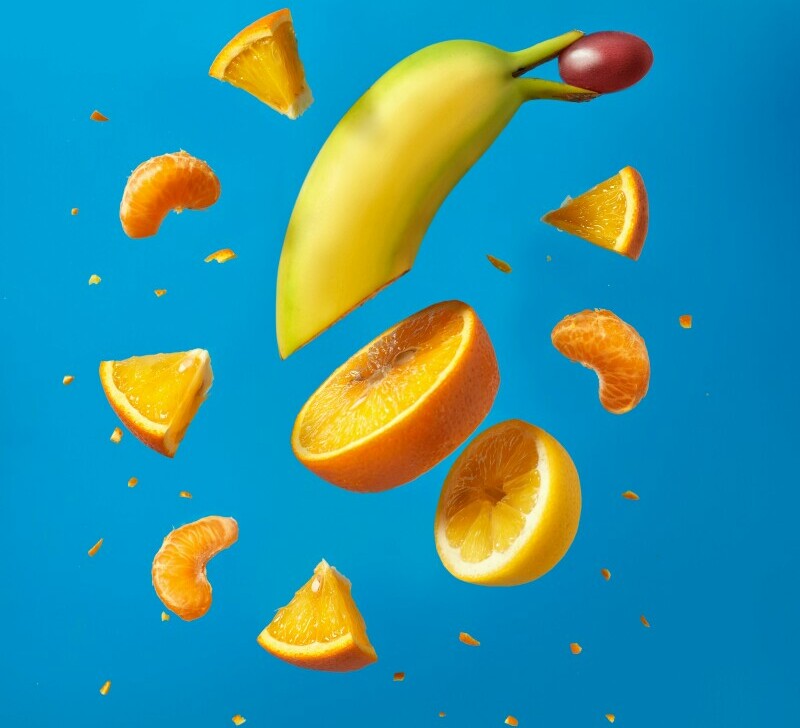
Scientific studies persistently explore and confirm the vital link between diet and eye health. Research has shown that individuals with a diet rich in leafy greens, fruits, and fish have a lower risk of developing eye diseases than those with poor dietary habits. This growing body of evidence emphasizes the critical role of nutrition in maintaining good vision throughout one’s life.
The complex connection between diet and vision is becoming more apparent as we learn, emphasizing the importance of making thoughtful food decisions for overall health and protecting our valuable sense of sight. By prioritizing a diet rich in eye-friendly nutrients, we can take an essential step toward safeguarding our vision for the future.
Key Nutrients for Maintaining Optimal Eyesight
Many individuals strive to maintain excellent vision, but only some realize the significant impact that their diet can have on their eyesight. Like the rest of our body, our eyes rely on specific nutrients to function optimally. Understanding the importance of these essential nutrients is vital for protecting our vision and promoting long-term eye health.
Vitamin A and beta-carotene are well-known for their role in eye health. These nutrients are crucial for supporting the retina’s health, which detects light and transmits visual signals to the brain. Vitamin A is essential for producing the pigment rhodopsin, necessary for seeing in low-light conditions. Inadequate Vitamin A can lead to dry eyes and increase the risk of night blindness and other severe conditions. Including beta-carotene in your diet is crucial for supporting vision, as it is converted into Vitamin A by the body. You can find beta-carotene in colorful fruits and vegetables such as carrots and sweet potatoes.
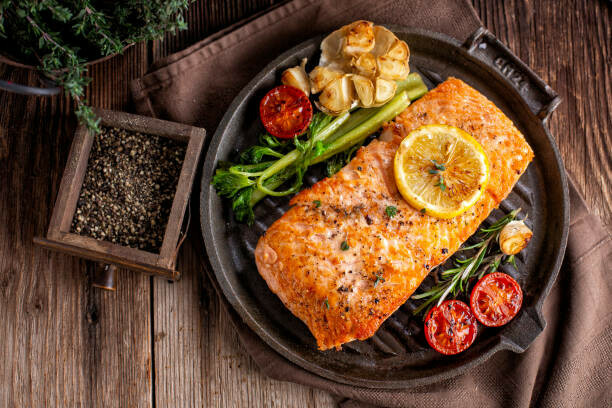
Omega-3 fatty acids, especially DHA (docosahexaenoic acid), are crucial for maintaining eye health. Omega-3 fatty acids are essential for maintaining proper eye function. They are highly concentrated in the retina and help protect against dry eye syndrome, a condition characterized by insufficient or poor-quality tear production. Research has found that consuming a diet abundant in Omega-3 fatty acids could potentially reduce the risk of age-related macular degeneration (AMD), a prominent cause of vision impairment in older individuals. Fatty fish like salmon, mackerel, and sardines are excellent sources of these essential fats.
Vitamins C and E also play a significant role in safeguarding the eyes against oxidative damage. The eye’s lens is particularly susceptible to oxidative stress, which can lead to cataracts and other degenerative conditions. Vitamin C, a potent antioxidant, helps neutralize free radicals that can cause this damage, and it also contributes to collagen production, which is essential for maintaining the structure of the cornea. Protect delicate eye tissues by using a combination of Vitamins E and C, which acts as a shield against oxidative stress, supporting overall eye health. Incorporating foods like citrus fruits, nuts, seeds, and leafy greens, which are abundant in these vitamins, into your diet can support good vision.
Lutein and Zeaxanthin, often called the “eye vitamins,” are potent antioxidants found in the macula, the central part of the retina that plays a crucial role in maintaining clear vision. These carotenoids aid in filtering out harmful blue light and safeguarding the eye from oxidative damage. Studies have demonstrated that a diet abundant in Lutein and Zeaxanthin can substantially reduce the risk of developing cataracts and AMD. Spinach and kale as well as other leafy greens are packed with essential nutrients for maintaining good eyesight.
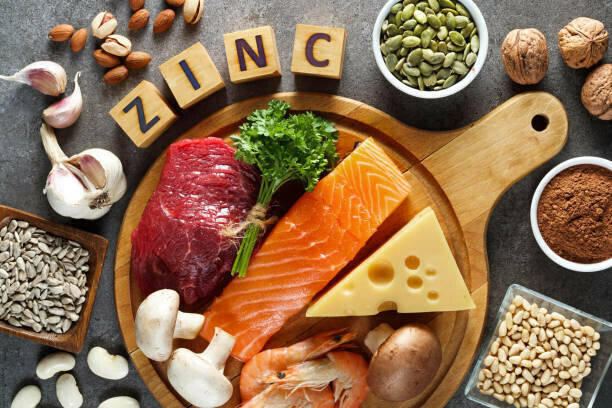
Zinc is another vital nutrient that promotes eye health by critically supporting the structure of the retina and the function of enzyme systems in the eye. Zinc is also known to assist in the absorption of Vitamin A, which helps enhance its effectiveness in maintaining and preserving vision. A zinc deficiency can lead to impaired vision and an increased risk of developing night blindness and macular degeneration. To support eye health, it is essential to include zinc-rich foods like oysters, beef, and pumpkin seeds in your balanced diet.
Ensuring these crucial nutrients in your daily diet can be a proactive approach to preserving good eyesight and guarding against common eye-related issues. By prioritizing foods rich in Vitamins A, C, and E, Omega-3 fatty acids, Lutein, Zeaxanthin, and Zinc, you can take a significant step towards preserving your vision and ensuring your eyes remain healthy for years.
Foods that Boost Eye Health
Your vision and eye health can significantly influence your food consumption. A diet rich in specific nutrients can protect your eyes from degenerative diseases and help them function at their best. Among the most effective eye-boosting foods are leafy green vegetables, fatty fish, citrus fruits, nuts, seeds, and eggs, each providing unique benefits that enhance and support vision.
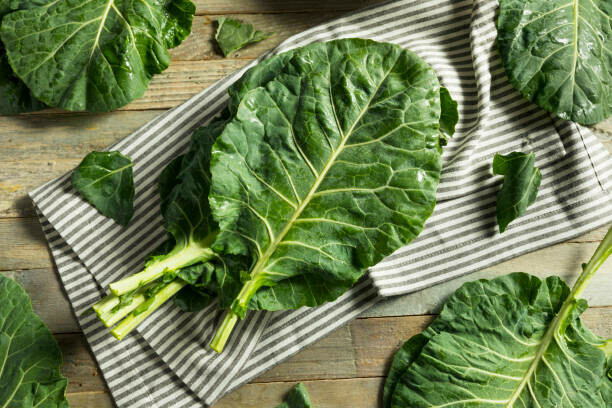
Leafy greens like spinach, kale, and collard are rich in carotenoids like lutein and zeaxanthin. These antioxidants are concentrated in the macula and are responsible for sharp central vision. They act as natural sunblock, absorbing harmful blue light and safeguarding your eyes from oxidative damage. Incorporating these green vegetables into your daily meals may help reduce the likelihood of developing age-related macular degeneration (AMD) and cataracts, making them essential for maintaining good eye health.
Fatty fish like salmon, mackerel, and sardines are excellent sources of Omega-3 fatty acids, especially DHA, a crucial retina component. Omega-3s are pivotal in preventing dry eye syndrome, reducing inflammation, and protecting against AMD. Regularly consuming fatty fish ensures that your eyes get the essential fats to stay hydrated and healthy, supporting overall eye function.
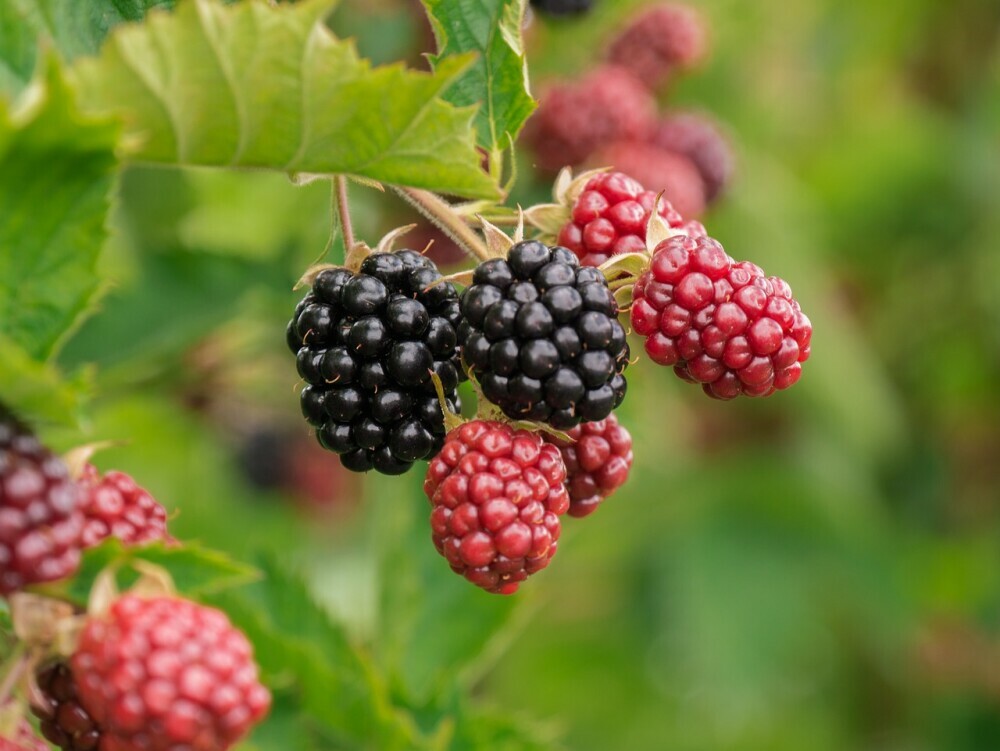
Citrus fruits and berries, abundant in Vitamin C, offer potent antioxidant protection that helps maintain the health of blood vessels in the eyes. Vitamin C is also essential in preventing cataracts and slowing the progression of AMD. Including fruits like oranges, grapefruits, and strawberries in your diet supplies your eyes with the necessary nutrients to combat oxidative stress and maintain long-term vision health.
Almonds, sunflower seeds, and walnuts contain Vitamin E, a powerful antioxidant. It is recognized for its capacity to safeguard the eyes against harm from free radicals. This vitamin collaborates with other nutrients to protect the delicate eye tissues, ensuring they remain strong and healthy.

Lastly, eggs are an excellent source of lutein, zeaxanthin, and zinc—essential nutrients for eye health. Carotenoids found in egg yolks can help filter out harmful blue light and support the health of our eyes. Regularly consuming eggs can contribute to clearer vision and a reduced risk of developing eye conditions as you age.
Incorporating these eye-boosting foods into your daily diet is a straightforward yet effective way to safeguard and enhance your vision. Prioritizing nutrition that supports eye health can lead to more precise, sharper sight for years.
Lifestyle Changes to Enhance the Benefits of a Vision-Friendly Diet

Making critical lifestyle adjustments alongside your vision-friendly diet can significantly enhance the advantages for your eye health. While feeding your eyes with the right foods is essential, adopting behaviors that aid and safeguard your vision can lead to even better results. Regular eye check-ups, for example, are crucial for maintaining optimal eye health. These appointments allow for early identification of potential problems, enabling prompt intervention before they develop into serious issues. By scheduling regular visits to your eye care provider, you can ensure that your eyes stay healthy and that any dietary modifications you make effectively support your vision.
Incorporating physical activity into your daily routine is another effective way to maximize the benefits of a vision-friendly diet. Exercise enhances blood circulation, improving the delivery of oxygen and nutrients to the eyes. This increased flow helps to safeguard the delicate eye tissues and promotes overall eye function. Regular physical activity, like brisk walking, yoga, or more intense cardio exercises, is essential for maintaining overall health and preserving optimal eye health.
Conversely, certain lifestyle practices can undermine your efforts to maintain healthy vision. Smoking is known to be linked to an increased potential risk of developing cataracts and age-related macular degeneration (AMD). Similarly, excessive alcohol consumption can harm the optic nerve and impair vision. Reducing or eliminating these habits can significantly decrease your risk of eye-related diseases, enabling your diet to effectively protect your vision.

Managing screen time is also vital in today’s digital era. Extensive screen use can cause digital eye strain, leading to discomfort and potentially impacting long-term vision. Following the 20-20-20 rule, which involves taking a 20-second break to concentrate on something 20 feet away every 20 minutes, can help reduce strain and protect your eyes from the effects of prolonged screen use.
Lastly, remaining hydrated is crucial for eye health. Sufficient hydration ensures that your eyes stay moist, reducing the chances of dry eye syndrome and irritation. Remember to drink an adequate amount of water daily, as it aids in flushing out toxins and contributes to adequately functioning your eyes. This complements the benefits of consuming a diet rich in nutrients.
By integrating these lifestyle adjustments with a vision-friendly diet, you can establish a comprehensive approach to eye health that ensures your vision remains sharp and robust for years to come.
Debunking Myths: What Diet Can and Cannot Do for Eyesight

Many people believe that improving vision is solely possible through diet regarding eyesight, but it’s crucial to distinguish between reality and misconception. Although nutrition is critical to preserving eye health, it’s not a miraculous solution. Understanding the capabilities and limitations of diet in terms of eyesight is essential for setting practical expectations and making well-informed decisions about vision care.
A common misconception is that consuming more carrots or other nutrient-rich foods can instantly improve your vision. While it’s true that carrots, containing beta-carotene, promote good night vision and help prevent conditions like cataracts, they won’t miraculously enhance visual acuity. No food can correct vision issues like myopia (nearsightedness) or hyperopia (farsightedness). While dietary improvements can aid in preventing the progression of specific eye diseases, they cannot replace corrective lenses or medical treatments.
It’s also crucial to understand the constraints of dietary interventions. It’s important to note that while maintaining a well-balanced diet can help protect your eyes from age-related conditions like macular degeneration and cataracts, it cannot reverse any existing damage. Additionally, focusing on diet alone may only address some factors that influence eye health. An individual’s susceptibility to certain eye conditions is significantly influenced by genetics. For example, if there’s a family history of glaucoma, consuming foods like kale or fish oil will only partially eliminate the risk. A healthy diet should be seen as a supportive measure rather than a cure-all for eye health concerns.

Another vital aspect of eye care is recognizing when to seek professional medical advice. If you observe changes in your vision, such as blurriness, flashes of light, or sudden vision loss, it’s crucial to immediately consult an eye care professional. While dietary changes can promote overall eye health, they do not substitute for professional evaluation and treatment.
Looking ahead, ongoing research continues to investigate the connection between diet and eye health, offering new insights into how specific nutrients might influence vision. However, as science advances, it’s essential to maintain a balanced perspective: a healthy diet is integral to maintaining good vision, but it is just one aspect within the broader scope of eye care.
Thank you for reading my article about “Can Diet Improve Eyesight? and I would love to receive your comments down below, in case of any.

